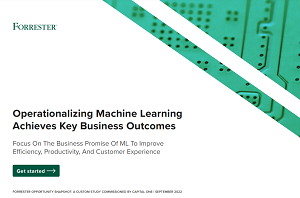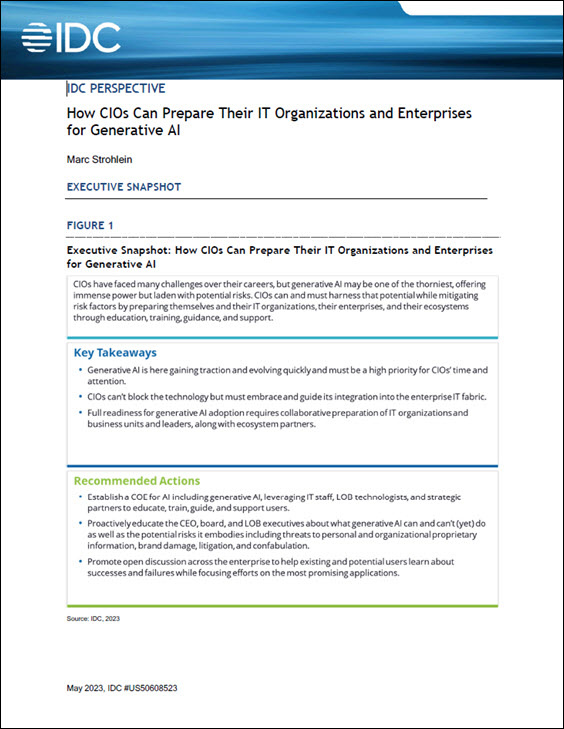
Capital One’s new Forrester study, “Operationalizing Machine Learning Achieves Key Business Outcomes,” reveals the biggest challenges, concerns and opportunities data executives experience when leveraging machine learning to improve business performance. While the report finds that data management decision-makers are concerned about key operational challenges that could slow ML deployments and maturity, the data also reveals that adoption continues to rise, with 67% of leaders planning to increase their use of ML across their business within the next three years.
Key study findings include:
- Data decision-makers face significant challenges in leveraging ML to improve business outcomes
- When asked about the top ML challenges their organizations faced, 73% of decision-makers cited transparency, traceability, and explainability of data flows as a key issue.
- Breaking down data silos is also a key obstacle for data managers – 57% believe internal silos between data scientists and practitioners inhibit ML deployments and 38% say data silos across the organization and external data partners pose a challenge to ML maturity.
- Other top challenges cited by respondents include working with large, diverse, messy data sets (36%), difficulty translating academic models into deployable products (39%), and reducing AI risk (38%)
- Despite these challenges data decision-makers plan to increase ML deployments across the enterprise
- A majority of data-decision makers (61%) plan to add new ML capabilities and applications to their organization over the next three years
- Top ML deployment priorities over the next three years include automated anomaly detection (40%), receiving transparent application and infrastructure updates automatically (39%), and meeting new regulatory and privacy requirements for responsible and ethical AI (39%).
- More than half (53%) of respondents are currently prioritizing improving business efficiency by leveraging ML
- To address these challenges, data leaders are investing in strategies and partnerships to drive ML maturity
- Nearly two-thirds (57%) of respondents intend to leverage partnerships to fill ML staff gaps
- Data leaders say they plan to invest more funds and resources into ML technology (63%)
- Nearly 40% are currently partnering with a third party for ML model development, training or data sourcing and are planning to grow that partnership (37%)
Conclusion
Data management decision-makers believe in the promise of AI/ ML to grow their businesses. To keep executives bought in, they are moving their organizations out of experimentation and toward operationalizing their ML strategies. To continue to evolve their ML applications, decision-makers must overcome silos among both people and processes. They must also find better ways to translate academic models into deployable products to better illustrate ROI to executives. By leveraging partners with firsthand experience and remaining relentlessly focused on the business promise of ML, decision-makers can prove the key outcomes of operationalizing ML like efficiency, productivity, and improved CX to executive leadership. With leadership buy-in, organizations can then pivot to scaling and operationalizing ML applications.
Read the full study HERE.
Methodology
This Opportunity Snapshot was commissioned by Capital One. To create this profile, Forrester Consulting supplemented this research with custom survey questions asked of 150 data management decision-makers in North America. The custom survey began and was completed in July 2022.
Sign up for the free insideAI News newsletter.
Join us on Twitter: https://twitter.com/InsideBigData1
Join us on LinkedIn: https://www.linkedin.com/company/insidebigdata/
Join us on Facebook: https://www.facebook.com/insideAI NewsNOW




